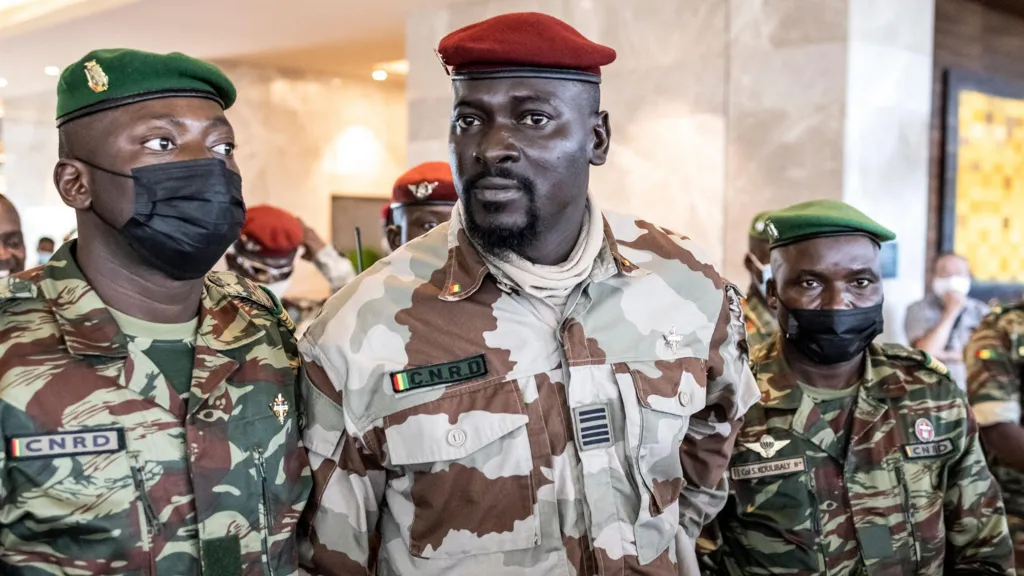Lawyers in Guinea are on strike to protest against a crackdown on dissent by the military regime.
On Tuesday, the country’s bar association denounced what it described as “arbitrary arrests” and the secret detention of citizens.
Lawyers would boycott court sessions until 31 July, it said.
Court activities are said to be “paralysed” by the strike, which could disrupt a landmark trial over a 2009 massacre that is regarded as one of the darkest moments in the West African nation’s history.
A court is due to hand down its verdict on the country’s former military ruler, Moussa Dadis Camara, over alleged crimes against humanity in relation to the 2009 killing of more than 150 people in a stadium, on 31 July.
Authorities have insisted the trial will proceed, but it is unclear if the verdict will be read on that date because of the strike.
The strike follows the arrest on 9 July of Oumar Sylla and Mamadou Bah, the leaders of a citizens’ movement that has been critical of the junta-led government and called for a return to civilian rule.
Rights group Amnesty International has called on the government to “immediately” release them.
It has called on the authorities to disclose where they are being detained and guarantee their safety, and allow them access to lawyers and family visits.
France’s far-left leader, Jean-Luc Mélenchon whose coalition won the most seats in the country’s recent parliamentary election, has also weighed in on the arrests in Guinea, a former French colony.
“France is heavily engaged with the power in place. It must intervene so that they are immediately released and put out of danger,” he said on X (formerly Twitter).
For months now, the Guinean authorities have been cracking down on peaceful dissent, including attempts to mobilise people towards a return to democratic rule.
The junta has been criticised for suspending media outlets, restricting internet access and brutally repressing demonstrations.
At least 157 people were killed in 2009, when troops attacked people who had gathered in a stadium to protest against a previous military junta. Scores of women were raped.
Mr Camara, the country’s leader at the time, is accused of many counts of murder, sexual violence, torture, abduction and kidnapping, along with other officials implicated in the massacre.
They all denied the allegations against them.
